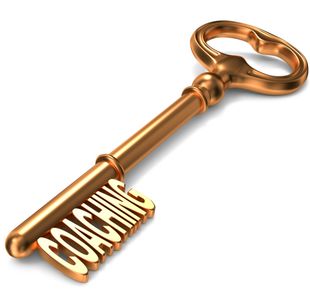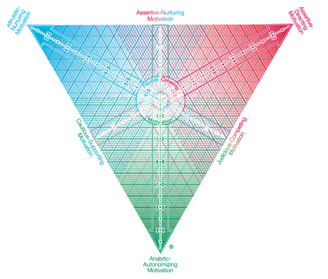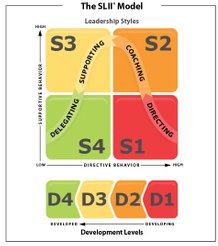

ANTROPE offers team and leadership development for international knowledge and service organisations. The coaching and training sessions can take place in Danish and English.
It gives value to hire a Coach when:
If you or your organisation needs to:
ANTROPE can support your organisation by giving you:
You can read more about the actual coaching process and the benefits hereof as it is described in further detail at the following link

ANTROPE Team Coach is for teams who want to strengthen co-operation and results.
ANTROPE uncovers organisations and teams current situations, and in co-operation with managers and team members, a customised program will be designed for the team.
ANTROPE can optimise team co-operation and results by:
As a team, it can sometimes be a challenge to move in one direction and get everyone to commit to the overall goal. A Coach can support your team to find a common ground and work towards the team’s goals and vision in the company.
How – Team Coach Process:








The teams ANTROPE have worked with have gained a much greater awareness of their strengths, being more supportive and honest in their collaboration process, and have learnt to give more constructive feedback to each other, thereby enhancing team performance.
Team development portfolio:
The benefit of coaching and feedback training is being able as a leader and colleague to give more constructive feedback to each other, thereby enhancing team and company performance.
The content of the training:
Increase the awareness of own strengths and weaknesses - and how to benefit from this when you work together with other people
Through the metaprogram training you will gain a thorough understanding of the different archetypes in the team and also a deeper insight into your own personal communicative preferences.
The Metaprogram training consist of:
SDI: Strength Deployment Inventory -
SDI® is a tool to strengthen the relationships internally in the organisation and thereby enhance productivity .
SDI®, Strength Deployment Inventory®, is an excellent tool to help prevent and deal with conflicts and improve relationships and team work. SDI is based on The Relationship Awareness Theory — a learning model that helps identify and understand the motivation behind our behaviour.
Typical situations where insight in SDI can be of use is when It's a challenge to get the team to go in the same direction or the start-up of a new team, a multicultural team or multisiteproject which gives challenges, because of differences in perceptions of agreements, or when there are communication problems between employees or departments.
The outcome and content of the SDI training program:
Insight into relationships, roles and strengths
SDI: Motivational system - understanding of motivation and relationships developed by psychologist Elias H. Porter.
Understanding behaviour under pressure and under normal circumstances – find out the motives behind behaviour
Individual SDI test
Know the strengths of each team member
The team will receive a SDI map, which describes the motivational- and conflict direction of the team
Process and dialogue concerning the team's results
Action plan for the team
Heightened engagement and increased productivity
Strenghten the understanding of differences/diversity in the
team or department and use it as an advantage
Gives insight and knowledge of conflict handling strategies
Time duration: 1/2 day workshop of 1 full day of training
The better we understand employees motivations and what moves them to conflict in the first place, the more likely we can prevent conflict in the future. And the prevention of conflict consistently over time will absolutely lead to higher productivity and prosperity in business.
This is an opportunity for a management team or project team to clarify the core compentences needed for the team to reach their goals and to increase energy and commitment of the team by upgrading the ability to give constructuve feedback and gain clarity of the team ressouces and direction.
Team building day will entail:
With situational leadership, it is up to the leader to change his/her leadership style, not the follower to adapt to the leader’s leadership style.
Situational leadership is a theory of leadership that is part of a group of theories known as contingency theories of leadership. The team members of a team can be divided in to four groups depending on their commitment, required knowledge for the job, and willingness to work, which is also known as "maturity level of the team". A leader should choose an appropriate leadership style depending on the maturity level of the team. Contingency theories of leadership hold a leader’s effectiveness is related to behaviours in relation to differing situational factors.
Situational leadership workshop entails:

Hypnotherapy can be used as a supplement to coaching methods as hypnotherapy is efficient in surpassing any conscious and/or subconscious mental beliefs that no longer are beneficial for the client and to replace these beliefs with more constructive and powerful beliefs that help and support the client in reaching his/her inspired goals and taking action towards realizing these.
Hypnotherapy is a form of therapy used to reprogram the subconscious mind. When under hypnosis, you put your mind and body into a heightened state of learning, making you more susceptible to suggestions for self-improvement or behavior modification.
Hypnotherapy, also referred to as guided hypnosis. The aim of hypnotherapy is to create a positive change in an individual, while the person is in a trance state. This trance-like state is similar to being completely absorbed in a book, movie, music, or even one's own thoughts or meditations. In this state, clients can turn their attention completely inward to find and utilize the natural resources deep within themselves that can help them make changes or regain control in certain areas of their life.
The client can hear what the hypnotherapist is saying during the session. The hypnotherapy is performed in a calm environment. Unlike some dramatic portrayals of hypnosis in movies, books, or on stage, you will not be unconscious or in any way out of control of yourself. You will hear the therapist’s suggestions, but it is up to you to decide whether or not to act on them.
The length of hypnosis treatment varies, depending on the complexity of the problem.
In a hypnotherapy session, you are in control the whole time. You will hear the suggestions made to you, and you will be able to remember them after the session. During your first session, you will begin by telling the coach/hypnotherapist about your goals and issues. You will then work together to come up with a plan to achieve these goals. Once you enter a state of hypnosis, your body will feel calm and relaxed, even as you enter a state of increased awareness, and during the session the hypnotherapist will place the suggestions you agreed to in your plan into your subconscious mind.
Your conscious mind is quieted, allowing your unconscious mind to deeply focus on your issue. You are also calmer, and therefore more receptive to facing your problems or fears. You will be guided to visualize yourself in a state of peacefulness and relaxation, even when confronting a problematic behavior or the object of your fears. The hypnotherapist will make gentle suggestions for behavior changes that can help you conquer your issue and help you to trust yourself and your ability to get through the situation.
Hypnotherapy is used to treat a wide range of conditions, issues, and unwanted/unhealthy behaviors, such as:
A hypnotherapy session entails:
Copyright © All rights reserved
We use cookies, just to track visits to our website, we store no personal details.